
A majority of Americans disapprove of President Donald Trump’s handling of the coronavirus outbreak, with 60% saying he should be listening to health experts more. In the midst of the crisis, few see the president as a trustworthy source of information on the outbreak.
Approval of how Trump has handled the coronavirus outbreak remains similar to March, with 41% approving of his handling of the situation while 58% disapprove. Republicans remain more supportive than Democrats or independents.
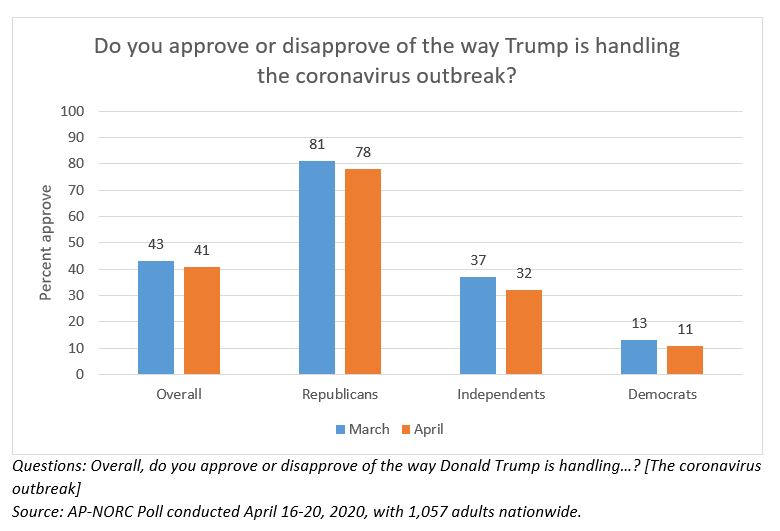
The president’s overall job approval has also remained steady since March, with 42% approving and 57% disapproving.
Sixty percent think the president should be listening to health experts more dealing with the virus. Ninety-one percent of Democrats, 58% of independents, and 28% of Republicans think he is not listening to health experts enough.
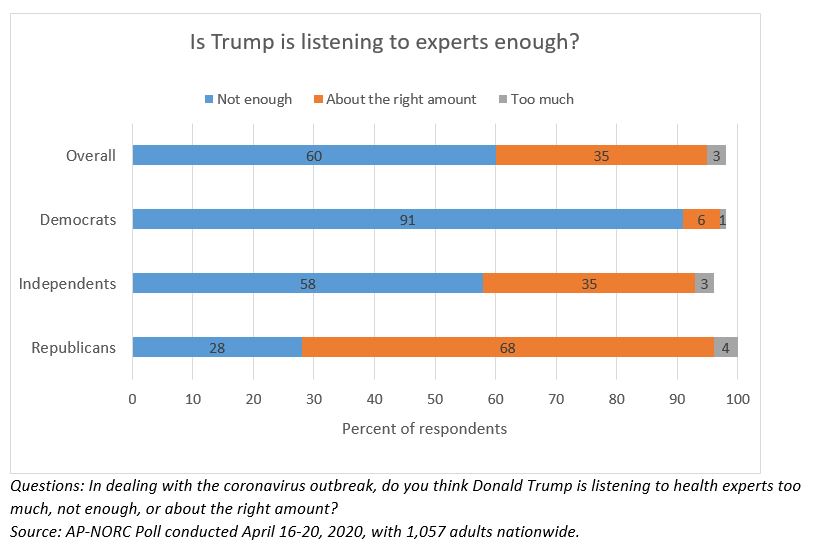
Thirty-two percent of Americans say the term “strong leader” describes the president very or extremely well. Fewer agree that he cares about people like them, or that the terms “honest” or “disciplined” describe him well.
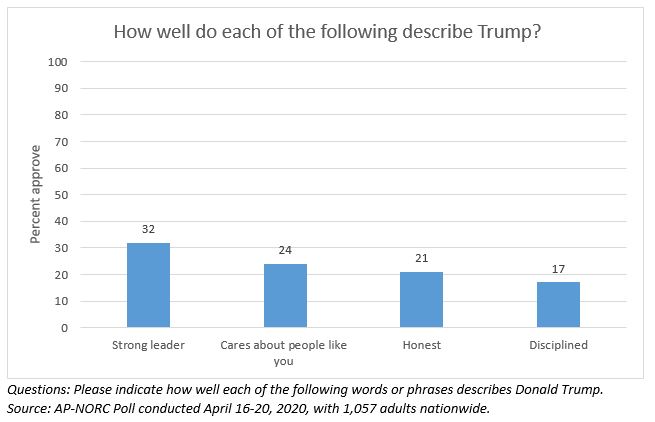
Rather than looking toward the president for information, Americans are often turning elsewhere for news about the coronavirus outbreak. The public is more likely to turn to state and local governments for regular information on the virus compared to the president (50% vs. 28%). He is also not seen as a particularly trustworthy source of information, with just 23% saying they can trust information about the virus from him quite a bit or more, compared to 52% for state and local governments.
He is, however, a more regular source of news among Republicans compared to Democrats or independents (46% vs. 14% and 20%, respectively). Overall, 1 in 5 trust information from him. Forty-seven percent of Republicans do, while just 12% of independents and 7% of Democrats agree.
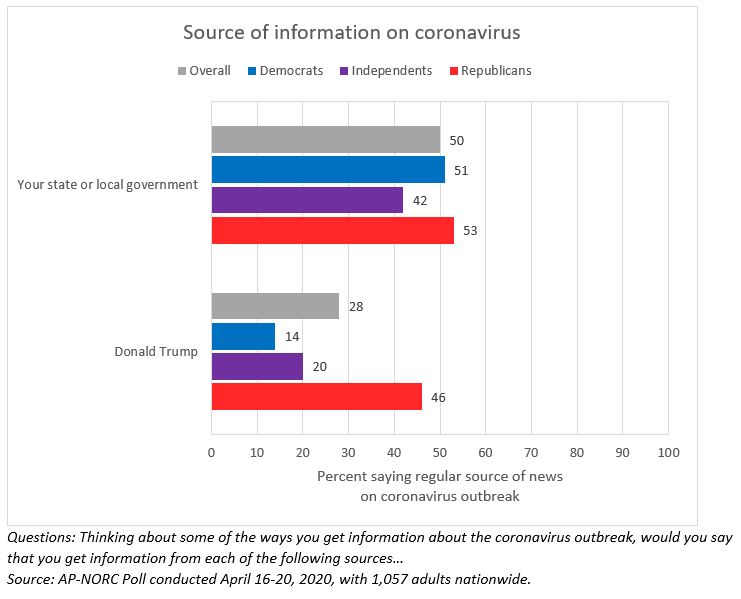
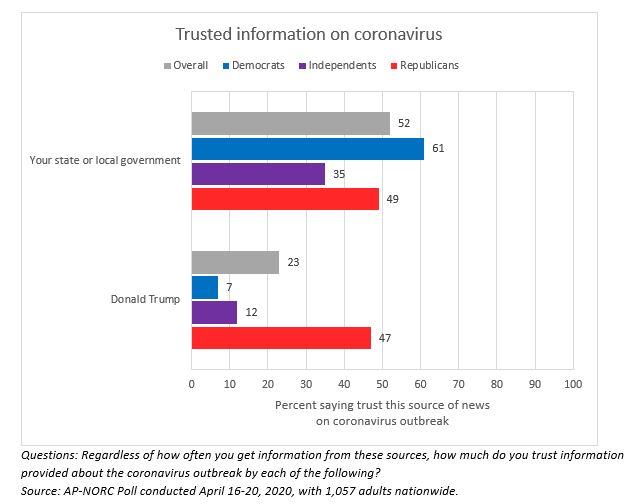
The nationwide poll was conducted April 16-20, 2020 using the AmeriSpeak® Panel, the probability-based panel of NORC at the University of Chicago. Online and telephone interviews using landlines and cell phones were conducted with 1,057 adults. The margin of sampling error is plus or minus 4.0 percentage points.



